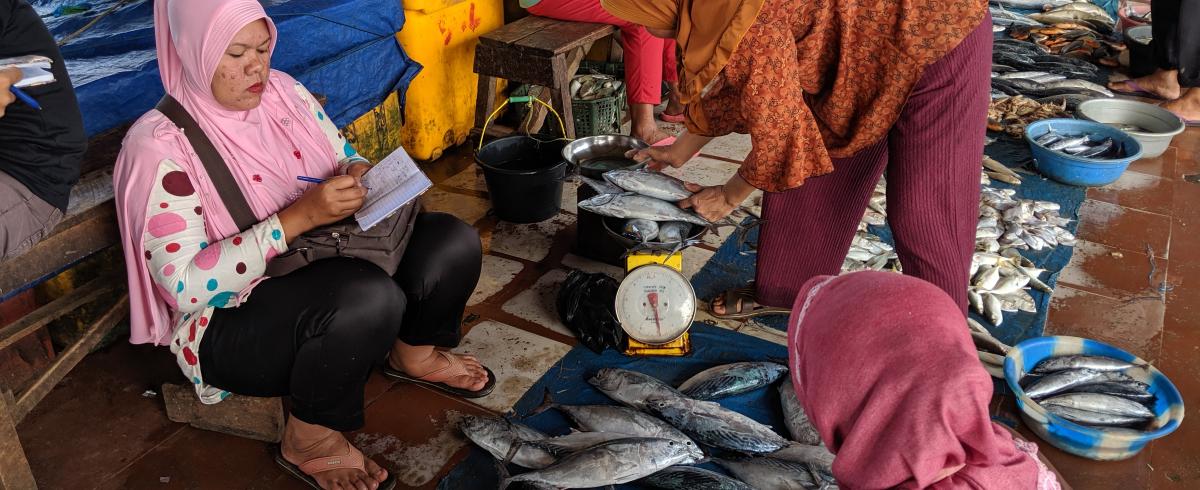The contributions of women to fisheries are often invisible, ignored, and unrecognized even though they represent 47% of the global fisheries workforce, especially in pre- and post-production activities. Poor data systems lead to incorrect assumptions about the gender division of labor in fisheries. This causes the role of women in fisheries to be overlooked. To evaluate the contribution of women in the value chain, a participatory methodology was implemented in three small-scale, fisheries in Mexico: California spiny lobster (Panulirus interruptus) fishery from the northern Mexican Pacific, penshell (Atrina maura) fishery from the Gulf of California, and Caribbean spiny lobster (Panulirus argus) fishery from the Mesoamerican Reef region.

